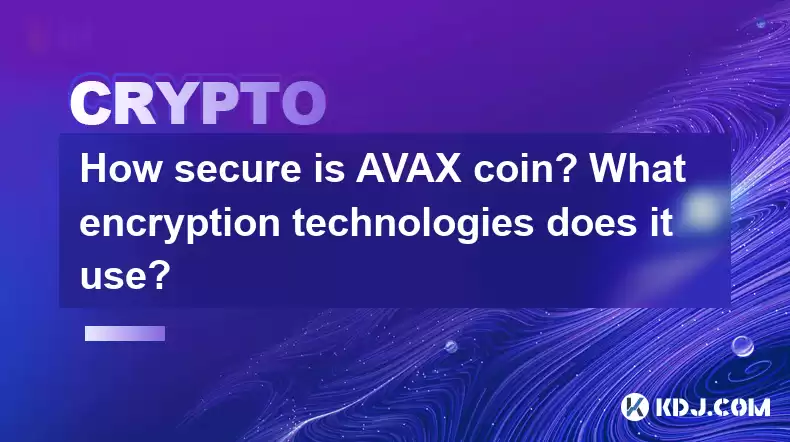-
 Bitcoin
Bitcoin $120100
1.16% -
 Ethereum
Ethereum $4329
2.25% -
 XRP
XRP $3.192
-0.22% -
 Tether USDt
Tether USDt $1.000
-0.01% -
 BNB
BNB $805.2
0.47% -
 Solana
Solana $178.7
-1.85% -
 USDC
USDC $0.9998
0.00% -
 Dogecoin
Dogecoin $0.2305
-1.62% -
 TRON
TRON $0.3445
1.17% -
 Cardano
Cardano $0.7940
-1.28% -
 Hyperliquid
Hyperliquid $44.44
-1.20% -
 Chainlink
Chainlink $21.86
-2.42% -
 Stellar
Stellar $0.4423
-0.15% -
 Sui
Sui $3.728
-3.84% -
 Bitcoin Cash
Bitcoin Cash $584.8
2.19% -
 Hedera
Hedera $0.2524
-2.87% -
 Ethena USDe
Ethena USDe $1.001
-0.02% -
 Avalanche
Avalanche $23.66
-0.78% -
 Litecoin
Litecoin $124.5
0.39% -
 Toncoin
Toncoin $3.399
1.77% -
 UNUS SED LEO
UNUS SED LEO $9.002
-0.44% -
 Shiba Inu
Shiba Inu $0.00001327
-2.10% -
 Uniswap
Uniswap $11.42
2.58% -
 Polkadot
Polkadot $3.957
-2.50% -
 Cronos
Cronos $0.1696
4.50% -
 Dai
Dai $1.000
0.00% -
 Ethena
Ethena $0.8139
3.04% -
 Bitget Token
Bitget Token $4.442
-0.38% -
 Monero
Monero $271.2
2.93% -
 Pepe
Pepe $0.00001168
-2.91%
How secure is AVAX coin? What encryption technologies does it use?
AVAX security relies on a layered approach: its novel Avalanche consensus mechanism, robust cryptographic hashing, regular security audits, and community scrutiny. While strong, no cryptocurrency is invulnerable; user vigilance remains crucial.
Mar 12, 2025 at 08:50 am

Key Points:
- Avalanche's security relies on a multi-faceted approach, not solely on a single encryption technology.
- It utilizes a novel consensus mechanism, Avalanche, offering high throughput and security.
- The platform benefits from strong cryptographic hashing algorithms for transaction verification.
- Security audits and community scrutiny play a significant role in enhancing AVAX's overall security.
- While robust, no cryptocurrency is entirely immune to potential vulnerabilities.
How Secure is AVAX Coin? What Encryption Technologies Does It Use?
The security of AVAX, the native token of the Avalanche blockchain, is a complex issue dependent on several interwoven factors. It's not simply a matter of a single encryption technology but rather a layered security architecture. Understanding this multi-faceted approach is crucial to assessing the overall security posture of the AVAX coin and the Avalanche platform.
Firstly, Avalanche's core innovation lies in its unique consensus mechanism, also called Avalanche. This algorithm differs significantly from Proof-of-Work (PoW) and Proof-of-Stake (PoS) systems. Unlike PoW's energy-intensive approach, Avalanche employs a probabilistic sampling method to achieve consensus quickly and efficiently. This speeds up transaction finality while offering high security through its inherent redundancy. The more validators participating, the more robust the consensus becomes. The system constantly validates transactions, reducing vulnerabilities and making it far more difficult for malicious actors to manipulate the network.
Beyond the consensus mechanism, the Avalanche platform employs robust cryptographic hashing algorithms. These algorithms are fundamental to ensuring the integrity and immutability of transactions recorded on the blockchain. These hashing functions are designed to be one-way functions, meaning it is computationally infeasible to reverse the process and derive the original input from the hash value. This prevents tampering with transaction data after it has been recorded. Specific algorithms used are continuously reviewed and updated based on advancements in cryptographic research. This commitment to constant improvement ensures the platform keeps pace with evolving security threats.
The security of AVAX also benefits from the community's active participation in monitoring the network. Regular security audits by independent firms are conducted to identify and address potential vulnerabilities. These audits act as an important check and balance, helping to uncover any weaknesses in the system's design or implementation before they can be exploited. Furthermore, the open-source nature of the Avalanche protocol allows for community scrutiny, with developers and security researchers continuously examining the codebase for potential flaws. This constant vigilance acts as a powerful deterrent against malicious actors and helps to maintain the overall security of the network.
However, it's crucial to remember that no cryptocurrency is entirely immune to risks. While the Avalanche protocol employs advanced security measures, vulnerabilities could still exist. Software bugs, unforeseen attacks, and even human error remain potential threats. The constant evolution of the cryptographic landscape necessitates continuous improvement and adaptation to maintain a high level of security. The Avalanche team actively addresses identified issues and incorporates community feedback to improve security protocols.
The use of strong cryptographic techniques combined with the decentralized nature of the network and community scrutiny are key components to the security model of Avalanche. However, user security also relies on best practices. Users must secure their private keys, be wary of phishing scams, and utilize secure wallets. The responsibility for security isn't solely on the developers but also on the users themselves.
Common Questions:
Q: What are the specific cryptographic hashing algorithms used by Avalanche?
A: Avalanche doesn't publicly specify every single algorithm used for internal processes. However, it relies heavily on well-established and widely used cryptographic hashing algorithms for transaction verification and data integrity. These would likely include SHA-256, or its successor SHA-3, and potentially other variations depending on specific implementation needs. The choice of algorithms is based on their security and performance characteristics.
Q: How does the Avalanche consensus mechanism improve security compared to traditional PoW or PoS?
A: Avalanche offers several security advantages. Unlike PoW, it avoids the energy-intensive mining process, making it more environmentally friendly. Compared to PoS, Avalanche's probabilistic sampling method allows for faster transaction finality and a higher throughput, which is less vulnerable to attacks that target the consensus process. Its decentralized nature and redundancy also offer greater resilience against malicious actors attempting to control the network.
Q: Are there any known vulnerabilities in the AVAX coin or Avalanche platform?
A: While Avalanche has a strong security record, like all blockchain platforms, it’s not immune to potential vulnerabilities. Publicly disclosed vulnerabilities are rare, and the team usually addresses them promptly. However, the possibility of undiscovered vulnerabilities always exists, which is why continuous security audits and community scrutiny are essential. Staying informed about any security updates or advisories issued by the Avalanche team is crucial for users.
Q: How can I protect my AVAX coins from theft or loss?
A: Securely storing your AVAX coins is paramount. Use reputable and well-reviewed hardware wallets for the most secure storage. Avoid storing large amounts of AVAX on exchanges, as they are susceptible to hacks. Always be wary of phishing attempts, verify the legitimacy of websites and emails before interacting with them, and never share your private keys with anyone. Regularly update your wallet software to benefit from the latest security patches.
Disclaimer:info@kdj.com
The information provided is not trading advice. kdj.com does not assume any responsibility for any investments made based on the information provided in this article. Cryptocurrencies are highly volatile and it is highly recommended that you invest with caution after thorough research!
If you believe that the content used on this website infringes your copyright, please contact us immediately (info@kdj.com) and we will delete it promptly.
- Bitcoin, Solana, MAGACOIN FINANCE: Navigating the 2025 Crypto Landscape
- 2025-08-12 00:30:13
- Cardano, ADA Holders, and Layer Brett: A Meme Coin with Real Utility?
- 2025-08-12 00:50:12
- Bitcoin, Michael Saylor, and Savvy Investors: A New Era of Digital Assets
- 2025-08-12 00:30:13
- Crypto Presales in 2025: Spotting the Next Big Thing with Analyst Insights
- 2025-08-12 00:50:12
- Cloud Mining in 2025: Bitcoin, Litecoin, and the Quest for Passive Income
- 2025-08-12 00:55:32
- Token Security, Agentic AI, Cybersecurity Guide: Navigating the New Frontier
- 2025-08-11 23:00:12
Related knowledge

How to purchase Aragon (ANT)?
Aug 09,2025 at 11:56pm
Understanding Aragon (ANT) and Its PurposeAragon (ANT) is a decentralized governance token that powers the Aragon Network, a platform built on the Eth...

Where to trade Band Protocol (BAND)?
Aug 10,2025 at 11:36pm
Understanding the Role of Private Keys in Cryptocurrency WalletsIn the world of cryptocurrency, a private key is one of the most critical components o...

What is the most secure way to buy Ocean Protocol (OCEAN)?
Aug 10,2025 at 01:01pm
Understanding Ocean Protocol (OCEAN) and Its EcosystemOcean Protocol (OCEAN) is a decentralized data exchange platform built on blockchain technology,...

Where can I buy UMA (UMA)?
Aug 07,2025 at 06:42pm
Understanding UMA and Its Role in Decentralized FinanceUMA (Universal Market Access) is an Ethereum-based decentralized finance (DeFi) protocol design...

How to buy Storj (STORJ) tokens?
Aug 09,2025 at 07:28am
Understanding Storj (STORJ) and Its Role in Decentralized StorageStorj is a decentralized cloud storage platform that leverages blockchain technology ...

Where to find the best price for Audius (AUDIO)?
Aug 11,2025 at 04:01pm
Understanding the Basics of Ethereum StakingEthereum staking refers to the process of locking up ETH tokens to support the security and operations of ...

How to purchase Aragon (ANT)?
Aug 09,2025 at 11:56pm
Understanding Aragon (ANT) and Its PurposeAragon (ANT) is a decentralized governance token that powers the Aragon Network, a platform built on the Eth...

Where to trade Band Protocol (BAND)?
Aug 10,2025 at 11:36pm
Understanding the Role of Private Keys in Cryptocurrency WalletsIn the world of cryptocurrency, a private key is one of the most critical components o...

What is the most secure way to buy Ocean Protocol (OCEAN)?
Aug 10,2025 at 01:01pm
Understanding Ocean Protocol (OCEAN) and Its EcosystemOcean Protocol (OCEAN) is a decentralized data exchange platform built on blockchain technology,...

Where can I buy UMA (UMA)?
Aug 07,2025 at 06:42pm
Understanding UMA and Its Role in Decentralized FinanceUMA (Universal Market Access) is an Ethereum-based decentralized finance (DeFi) protocol design...

How to buy Storj (STORJ) tokens?
Aug 09,2025 at 07:28am
Understanding Storj (STORJ) and Its Role in Decentralized StorageStorj is a decentralized cloud storage platform that leverages blockchain technology ...

Where to find the best price for Audius (AUDIO)?
Aug 11,2025 at 04:01pm
Understanding the Basics of Ethereum StakingEthereum staking refers to the process of locking up ETH tokens to support the security and operations of ...
See all articles

























































































